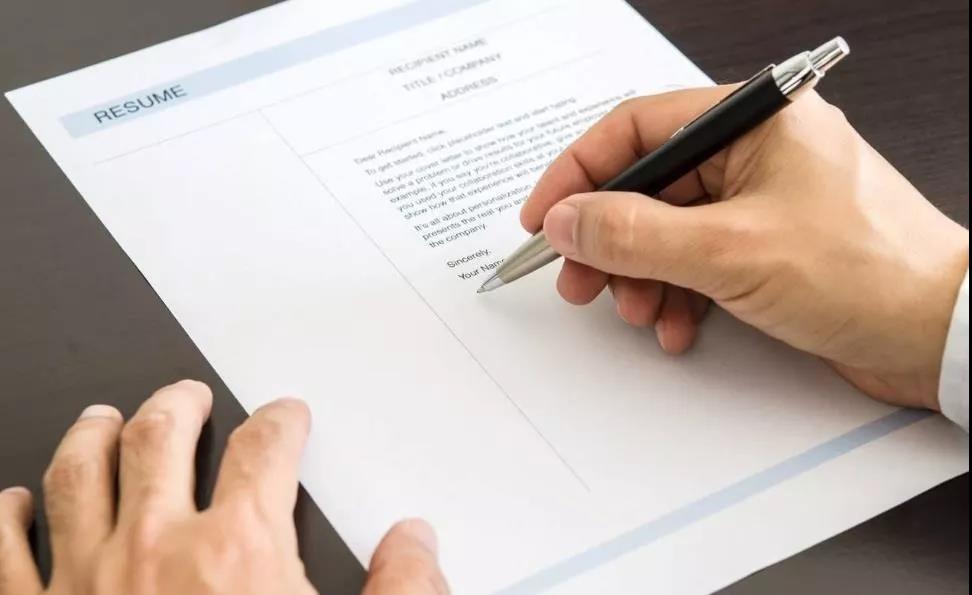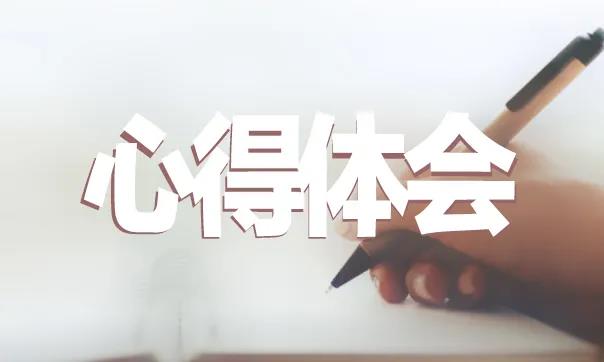2023年高中必修五英语知识点8篇
时间:2024-03-23 20:12:02 来源:勤学考试网 本文已影响 人 
高中必修五英语知识点Unit1:1、putforward:提出(计划、建议等);将…提前;把钟表拨快e.g.Heputforwardagoodplanfor下面是小编为大家整理的高中必修五英语知识点8篇,供大家参考。

高中必修五英语知识点篇1
Unit 1:
1、 put forward: 提出(计划、建议等);将…提前;把钟表拨快
e.g. He put forward a good plan for this project. 他为这项工程提出了一个好的方案。
The match has been put forward to 1:30. 比赛已经提前到一点半举行。
Put the clock forward by ten minutes. 把钟表拨快十分钟。
【词语联想】
? put away: 收起来;贮存,储蓄
? put down: 放下;写下,记下
? put off: 推迟;延期
? put on: 穿上;增加;上演(戏剧)e.g. put on weight: 增加了体重 put on a new play: 上演新戏剧
? put up: 张贴;撑开(帐篷)e.g. put up a poster put up a tent: 搭起帐篷
2、 conclude: v. 作结论,断定(conclusion: n. 结论)
e.g. The jury concluded that he was guilty. 陪审团认定他有罪。
【习惯用语】★ draw a conclusion 作出结论
3、 defeat vt.打败, 击败, 战胜; 使(希望, 计划等)失败, 挫败; 阻挠, 使无效
e.g. He finally conceded defeat. 他最终承认了失败。
◆ 区别: defeat, conquer, overcome
? defeat 指“赢得胜利”, 尤其指“军事上的胜利”,e.g. defeat the enemy 打败敌人。
? conquer指“征服”、”战胜”,特别指“获得对人、物或感情的控制”,e.g. conquer nature
? overcome指“战胜”、“压倒”、“克服”尤指“感情”而言, e.g. overcome difficulties
4、 attend: v.
1) to be present at; go to (meeting, conference, lecture.。.) 出席;参加
e.g. He decided to attend the meeting himself. 他决定亲自赴会。
2) to look after, care for, serve 照顾;看护。
e.g. Which doctor is attending to (on) you? 哪位医生护理你?
3)to go with 伴随
e.g. The work was attended with much difficulty. 这项工作带来许多困难。
5、 expose.。.to.。.
e.g. Don"t expose your skin to the sun for too long.
They had to be exposed to the enemy"s gunfire.
6、 blame sb. for sth. 因为某事责备某人
e.g. He blamed the boy for his mistake.
★ be to blame: 应受责备,应负责任
Who is to blame for the mistake?这个错误应归咎于谁?
7、 in addition: 除此之外,另外, 意思相当于 besides, what"s more
e.g. I paid 100 Yuan in addition.
In addition to English, he has to study a second language.
◆ 区别: in addition to, except, besides,beside
? in addition to:除…之外,还有…,表示递进关系。
e.g. The company provided the workers with free lunch in addition to paid holidays. 这家公司为员工们提供带薪假期,还有免费午餐。
? except: 除…之外,表示在整体中排除,
e.g. Everyone except me got an invitation. 除了我以外, 所有人都收到了请柬。
? besides 表示“除了……以外,还有……”,与in addition to 同义,
e.g. Besides Mr Wang, we also went to see the film.王先生也去了。
We all agreed besides him.我们都同意, 他也同意。
? beside : 在…旁边。表示方位。
e.g. Lily sits beside me in class. 莉莉在班上做我旁边。
同义句转换
1)He speaks French as well as English.
e.g. He speaks French in addition to/besides English.
2) Apart from the salary, it’s not a bad job.
e.g. In addition to/Except the salary, it’s not a bad job.
8、 announce: 公布;宣告
e.g. He announced his decision. 他宣布了他的决定。
9、 absorb v.
1) 吸收 A sponge absorbs water. 海绵吸水。
2)专心于
★ be absorbed in sth: 专心的,全神贯注的
The little girl was absorbed in reading a tale. 这个小姑娘正在全神贯注的阅读一篇故事。
10、 challenge n.挑战; 挑战书; 邀请比赛; 要求决斗
vt. 向。.。挑战, 要求, 怀疑 ; vi. 挑战, 对(证据等)表示异议
e.g. meet the serious challenge 面对严峻挑战
高中必修五英语知识点篇2
Unit2 The United Kingdom
【重点词汇、短语】
1、 consist 组成,在于,一致
2、 consist of 由…组成
3、 divide…into 把…分成
4、 break away from 脱离
5、 to one’s credit 在…的名下,为…带来荣誉
6、 attract 吸引,引起注意
7、 leave out 省去,遗漏,不考虑
8、 plus 加上,和,正的
9、 take the place of 代替
10、 break down 损坏,破坏
11、 arrange 安排
12、 fold 折叠,对折
13、 delight 快乐,高兴,喜悦
【重点句型】
1、 How many countries does the UK consist of?
联合王国由几个国家组成?
2、 You can easily clarify this question if you study British history.
如果你学习了英国历史,很容易就能弄清楚这个问题。
3、 Happily this was accomplished without conflict when King James of Scotland became King of England and Wales as well.
令人高兴的是,这件事没有引起冲突就完成了,那时候苏格兰的詹姆斯国王也成为了英格兰和威尔士的国王。
4、 However, the southern part of Ireland was unwilling and broke away to form its own government.
然而,爱尔兰的南部却不愿意而分离出去了,并建立了自己的政府。
5、 To their credit the four countries do work together in some areas.
值得表扬的是,这四个国家的确在一些方面共同合作。
6、 England is the largest of the four countries, and for convenience it is divided roughly into three zones.
在这四个国家中,英格兰最大,为了方便起见,它大致被分为了三个地区。
7、 You must keep your eyes open if you are going to make your trip to the United Kingdom enjoyable and worthwhile.
如果你想要使你的英国之旅愉快又有意义,你就必须留心观察。
8、 Worried about the time available, Zhang Pingyu had made a list of the sites she wanted to see in London.
由于担心时间不够,张萍玉早就把她想在伦敦参观的地点列了一张单子。
9、 It looked splendid when first built.
刚建成的时候,它看起来真是金碧辉煌。
10、 What interested her most was the longitude line.
她最感兴趣的是那条经线。
【语法总结】
过去分词作宾补
过去分词作宾语补足语,说明宾语的状态或性质,过去分词所表示的动作和宾语有逻辑上的动宾关系。
一。 能接过去分词作宾语补足语的动词有三类:
1、 表示感觉或心理状态的动词,如:see, hear, feel, watch, notice;think(认为), consider, find等。
We saw the thief caught by the police.
我看见小偷被警察抓住了。
We thought the game lost.
我们认为球赛输了。
2、 表示“致使”或“保持某状态”意义的动词,如:make, get, have, keep, leave等。
Don’t leave such an important thing undone.
不要让这么重要的事没有人做。
He had his hat blown away on his way home.
在回家的路上他的帽子被吹掉了。
3、 表示“希望、要求、命令”等动词,如:want, wish, like, expect, order等。
I want the house white-washed before we move in.
我想要房子在我搬进去之前粉刷完。
He won’t like such questions discussed at the meeting.
他不喜欢在会上讨论这样的问题。
二。 "with +宾语+过去分词"结构
"with +宾语+过去分词"结构中,过去分词用作介词with的宾语补足语。这一结构通常在句中作时间,方式,条件,原因等状语。例如:
1、 The murderer was brought in,with his hands tied behind his back.凶手被带进来了,他的双手被绑在背后。(表方式)
2、 With water heated,we can see the steam.水一被加热,我们就会看到水蒸气。(表条件)
3、 With the matter settled,we all went home.事情得到解决,我们都回家了。(表原因)
高中必修五英语知识点篇3
1. the ancient Olympic Games 古代奥运会
2. compete in …compete with other countries for world market 与其它国家竞争国际市场
compete in a race 参加赛跑
compete with [against] sb. for sth. 与某人竞争而获得某物
Our Greek cities used to compete against each other just for the honour of winning.我们希腊各个城市之间曾经为了荣誉而彼此之间相互竞争。
3. take part in 参加
We all had to take part in the training run, with nobody excepted.
我们大家都得参加跑步训练, 无人例外。
4. What do the five rings on the Olympic flag stand for? 奥运旗帜上的五环代表什么?
stand for 代表;表示;主张;支持;拥护;容忍;允许
What does "ESL" stand for? "ESL"代表什么?
I won"t stand for his insults any longer. 我再不能容忍他的污辱了。
5. the official mascots for the Beijing Olympics 北京奥运会吉祥物
Fuwa,the Official Mascots of Beijing 2008 Olympic Games, carry a message of friendship ,peace and good wishes from China to children all over the world.
福娃是北京2008年第29届奥运会吉祥物,它们向世界的孩子们传达友谊、和平和良好的祝福。
6. come on a magical journey 做梦幻之游come on (表劝说,鼓励等)来吧,走吧;开始
His French has come on a lot since he joined the conversation class.
他自从参加了会话班,法语取得了很大进步。
7. (a) volunteer for (……志愿者)志愿做……
Don"t volunteer for more than you can handle. 别做力不能及的事情。
I want to be a volunteer for 2008 Beijing Olympics.
我想成为2008年北京奥运会的志愿者。
8. I lived in what you call “Ancient Greece” and used to write about the Olympics a long time ago 我生活在你们所说的“古希腊”,我曾经写过很久以前奥林匹克运动会的情况。
We used to keep in touch with each other by writing letters.我们过去常写信联系对方。
I am used to reading stories to my daughter every night and she enjoys it.我习惯了每天给女儿讲故事,她也非常喜欢这样做。
Wood can be used to make furniture. 木头能用来做家具。
There used to be a temple at the place where our school stands now.在我们学校所在之处过去有一座庙。
9. …and both are held every four years on a regular basis. 两个都是定期每四年举行一次。
on a regular basis 定期地He comes to visit us on a regular basis.他定期来看望我们。
10. Only atheletes who have reached the agreed standard for their event will be admitted as competitors. 只有达到他们各自项目统一标准的运动员才会被接受参见奥运会。
I am sure that he will be admitted to Beijing University this summer. 我肯定他今年夏天将被北京大学录取。
This ticket admits two people to the football match. 这张票可供两人入场看足球赛。
The cinema admits about 2000 people.这座电影院大约可坐 2000 人。
The rules and regulations admit of no other explanation.这些规章制度不容许有其他解释。
His illness admits of no delay.他的病不容拖延。
He never admits that he is wrong. 他从不承认自己错了。
John has admitted breaking the window. 约翰已承认打碎了窗子。
11. It is in the Summer Olympics that you have the running races, together with swimming, sailing, and all the team sports.跑步、游泳、划船和所有团队项目是在夏季奥运会上进行的。
12. No other counries could join in, nor could slaves or women. 别的国家不能参加,奴隶和妇女也不能参加。
13. Women are not only allowed, but play a very important role in gymnastics…妇女不仅允许参加,而且她们还在体操比赛项目中起着非常重要的作用。
14. as well 也;又;同样
as well as (除。之外)也,既。又
conj. 以及,又
I write my own songs and I play the guitar as well.
我唱自己谱曲的歌,也弹吉他。
A teacher should entertain as well as teach.教师不仅要教书,也要激起学生的兴趣。
15 There is as much competition among countries to host the Olympics as to win Olympic medals.国与国之间争取奥运会承办权的竞争就跟争夺奥运奖牌一样地激烈。
16. So even the olive wreath has been replaced. 就连橄榄枝花环也被取代了。
David will replace Mike in next week’s tennis competition. 大卫将代替迈克参加下周的网球赛。
The broken parts of the machine must be replaced, otherwise we can’t continue our work. 这些损害的机器部件必须得换,否则我们无法继续工作。
I have owned my car for almost ten years. This year I’ll replace it with a new one. 我的汽车用了差不多十年了,今年我要换一辆新车。
Would you replace the magazine after reading it? 读完杂志后把它放回原处好么?
17. Put forward your ideas and give reasons for your choice. 提出你的观点并给出你选择的原因。put forward 呈上;提出;提前;拨快(钟表)
Two advices of design are put forward.
提出了两点设计建议。
The reason for this is that this plane is also a bicycle. 其原因是,这架飞机又是一辆自行车。
reason with sb. for [against] sth.
因赞成[反对]...同某人讲道理[辩论]
reason sb. out of his prejudice说服某人消除成见
reason sb. into accepting a proposal说服某人接受建议
18. be in/under sb’s charge
管理
in charge of 负责
These books were left in your charge. 这些书由你管理。
The chief engineer was in charge of directing the building of the subway. 主任工程师负责指挥地铁的建造工程。
I was in charge of my sister. 我在照看我妹妹。
This ward is in [under]the charge of Dr Green. 这间病房是由格林大夫负责的。
How much did he charge you for repairing the bicycle? 他修理自行车收了你多少钱?
Do you charge for the use of the office telephone at off-duty time? 下班时间打办公电话你们收不收费?
The boy charged into the room. 男孩冲进屋里。
Suddenly the wild animal charged at us. 突然那头野兽朝我们冲过来。
Those young men were charged by the police with causing a disturbance in the neighbourhood.
警察指控那些青年人在这一带犯了扰乱治安罪。
She charged me to look after her daughter. 她要我负责看管她的女儿。
19. physical exercise 体育锻炼
Physical fitness is having a strong healthy body. 身体健康就是有一个强壮健康的身体。
physical change 物理变化
physical education 体育
20. rise to one’s feet 站起来,立起。
21. She was in front in her race when another competitor pushed her on purpose so that she fell down. 她在比赛中跑在前面,突然另外一个运动员故意推了她一下,结果她摔倒了。
22. take responsibility for…对……负有责任,负起对……的责任
23. If you are discovered, you will be fined. 如果被发现,你将被罚款。
He was fined 200 dollars for violation of traffic regulation. 他因违反交通规则被罚款200美元。
24. win glory for sb. 为某人赢得荣誉
We must try to win glory for our school!我们必须设法为母校争光。
25. make a bargain with sb. 与某人成交
26. promise to do sth. 答应做某事
He has promised to behave better henceforth. 他答应从今以后要表现得好些。
She promised her brother that she would write to him. 她答应弟弟将给他写信。
This year promises to be another good one for harvests. 今年看来又是个丰收年。
Remember to carry out your promise . 记住要履行诺言。
He broke his promise and did not come to see me. 他不遵守诺言,没来看我。
The news brings little promise of peace. 这消息使和平无望。
27. She practised running to compete in the Olympic Games. 为了参加奥运会她练习跑步。
28. Atlanta married him and lived happily ever after. Atlanta和他结了婚,从那以后幸福地生活。
29. one after another 一个接一个地Difficulties arise one after another.困难相继出现。
30. deserve to do sth
理应做,值得做
deserve attention [sympathy]
值得注意[同情]
deserve to be rewarded [punished] 该奖[罚]
If you do wrong, you deserve punishment. 你如做错事, 应当受罚。
31. Apart from playing at school I go to sports school every weekend. 除了在学校踢球之外,我每周末都去体校。
She keeps herself apart from (ie does not mix with) other people. 她与别人保持距离(不与别人混在一起).
It"s a good piece of work, apart from a few slight faults. 除了一些小缺点之外,这不失为一件漂亮的工作。
32. I especially like playing on the wing like Beckham but being a striker is good as well. 我尤其喜欢像贝克汉姆一样踢边锋,但是当一名射球手一样好。
Dance and sing, Time"s on the wing.跳吧,唱吧,光阴似箭。
33. be active in
积极于
34. This is important because the more you speak English, the better your English will become.这很重要因为你说英语越多,你的英语水平就会变得越好。
35. Don’t be shy about making mistakes.别害怕犯错误。
36. In this way you will become confident in speaking English. 这样你就会对说英语充满信心。
One has to be confident in himself. 一个人一定要对自己有信心。
高中必修五英语知识点篇4
Unit1 Great scientists
【重点词汇、短语】
1、 put forward 提出
2、 conclude 结束,结论
3、 draw a conclusion 得出结论
4、 defeat 打败
5、 attend 照顾,护理,出席
6、 expose to 使显露
7、 cure 治愈,治疗
8、 challenge 挑战
9、 suspect 怀疑,被怀疑者
10、 blame 责备
11、 handle 柄,把手,处理,掌控
12、 link 联系,连接
13、 link to 将…和…连接
14、 announce 宣布
15、 contribute 捐献,贡献
16、 apart from 除了
17、 be strict with 对…严格
18、 make sense 讲的通,有意义
19、 spin 使旋转
20、 reject 拒绝,抛弃
【重点句型】
1、 What do you know about infectious diseases?
你对传染性疾病了解多少?
2、 John Snow was a famous doctor in London – so expert, indeed, that he attended Queen Victoria as her personal physician.
约翰?斯诺是伦敦一位著名的医生——他的确医术精湛,因而成为维多利亚女王的私人大夫。
3、 But he became inspired when he thought about helping ordinary people exposed to cholera.
但当他一想到要帮助患了霍乱的普通老百姓,他就感到很振奋。
4、 Neither its cause, nor its cure was understood.
人们既不知道它的病源,也不了解它的治疗方法。
5、 He knew that cholera would never be controlled until its cause was found.
他知道,在找到病源之前,霍乱疫情是无法控制的。
6、 The second suggested that people absorbed this disease into their bodies with their meals.
第二种看法是在吃饭的时候人们把这种病毒引入体内的。
7、 John Snow suspected that the second theory was correct but he needed evidence.
约翰?斯诺猜想第二个理论是正确的,但他需要证据。
8、 It seemed that the water was to blame.
看来要归罪于饮用水了。
9、 He immediately told the astonished people in Broad Street to remove the handle from the pump so that it could not be used.
约翰?斯诺马上叫宽街上惊惶失措的老百姓拆掉水泵的把手,这样水泵就用不成了。
10、 In another part of London, he found supporting evidence from two other deaths that were linked to the Broad Street outbreak.
在伦敦的另一个地区,他从两个与宽街爆发的霍乱有关联的死亡病例中又发现了有力证据。
【语法总结】
过去分词作定语和表语
一。 过去分词作表语
作表语用的过去分词表示主语的特点或所处的状态,相当于形容词,强调主谓关系;被动语态表示动作,强调动宾关系,绝大多数被动结构中的行为执行者还可以用by短语来表示。
1、 过去分词做表语与被动语态的差异:
The store is now closed.(系表)
The library is usually closed at 8:00 p.m. (被动)
2、 某些过去分词作表语,多半用来表示人物所处的心理状态或情感变化, 其主语主要是人。
这类过去分词通常为下列过去分词: delighted, devoted, discouraged , astonished, frightened, excited, inspired, encouraged, interested, contented, pleased, puzzled, satisfied, tired, worried, ect 。
二。 过去分词作定语
作定语的过去分词相当于形容词,其逻辑主语就是它所修饰的名词。及物动词的过去分词作定语,既表被动又表完成;不及物动词的过去分词作定语,只表完成。
1、 过去分词用作定语,如果是单个的,置于其所修饰的名词之前。
We must adapt our thinking to the changed conditions.
我们必须使我们的思想适应改变了的情况。
2、 过去分词短语用作定语时,置于其所修饰的名词之后,其意义相当于一个定语从句,但较从句简洁,多用于书面语中。
The concert given by their friends was a success.
他们朋友举行的音乐会大为成功。
3、 过去分词短语有时也可用作非限制性定语,前后常有逗号。
The meeting,attended by over five tho m.gaokaobaba.com usand people,welcomed the great hero.
他们举行了欢迎英雄的大会,到会的有五千多人。
高中必修五英语知识点篇5
Unit 5:
1、 first aid 的意思是“急救”,例如:first aid to the injured 给予伤员的急救。
短语联想
give/offer aid 援助come to sb"said 帮助某人
teaching aids 教具medical aid 医疗救护
with the aid of 借助于
get injured 受伤,在现代英语中大量地出现了由“get+ 及物动词不达意的过去分词”构成的被动语态,这叫get - 型被动语态。又如:
The computer got (was)damaged when we weremoving.
My bike is getting (is being)repaired row.
2、 Protect 动词,“保护、维护”,用于句式“protect + 名词+ against/from + 名词”。
e.g. He is wearing sunglasses to protect hiseyes from the strong sunlight.
【短语联想】
? Keep.。. from.。. 不让/避免
? stop.。. (from) 。.。 阻止
? prevent.。.(from) 。.。 妨碍/防止
?disable.。. from.。. 使……失去(能力/资格)
?save.。. from.。. 挽救、拯救
3.depend on 取决于。
e.g. The amount you pay depends on where youlive.词义拓展
depend on 依靠,依赖:His familydepends on him. 他的一家人全靠他养活。
依赖,信任:We are depending on you to finish the job by Friday.
4、 squeeze 动词,意思是“榨取”、“挤出”,例如:squeeze an orange 榨橘子
squeeze + 名词+ out(of/from)+ 名词,
e.g. Those blackmailers intended to squeezemore money out of him.
5、 hurt 既可作及物动词,作“伤害”、“使受伤”解,也可作不及物动词,作“疼痛”、“感到疼痛”解。既可表达身体的受伤,也可以表达情感的伤害。例如:
e.g. The little boy has fallen off a ladderand hurt himsel
f.
The driver hurt himself in the accident. 司机在事故中受了伤。
6、 unless 除非……;如果不……。如:
7、 icy adj. 冰凉的
-y 是个形容词后缀。如:
windy 有风的hilly 多小山的sleepy 困倦的
greeny 略呈绿色spicy 辛辣的woody 树木茂密的
thirsty 饥渴的dirty 脏的snowy 下雪的
8、 in place 放在适当的地方。如:
e.g. The librarian put the returned books inplace. 图书管理员把还回的图书放到原处。
Yon"d better put things back , it will be difficult to find things.
9、 sense n. 感觉
?sense of touch 触觉sense of sight视觉
? sense of hearing 听觉sense of smell嗅觉
? sense of humour 幽默感sense ofbeauty 美感
?ense of hunger 饥饿感the sixthsense 第六感
10、 variety n. 多样, 种类,
★ a variety of…各种各样……
【词语联想】
various a. 不同的, 各种的, 多方面的, 许多的
e.g. Everyone arrived late at the party forvarious reasons.
The Past Participle used As Attribute andPredicative
第一讲、过去分词做定语和表语
1.English is a widely used language.
2.He threw away the broken cup.
3.This is one of the schools built in 1980s.
4.Prices of daily goods bought through acomputer can be lower than store prices. 单个过去分词作定语,常放在被修饰词的前面;
过去分词短语作定语,常放在被修饰词的后面。
spoken English
= English which is spoken
terrified people
= the people who are terrified
an organized way
= a way that is organized
affected area 灾区
= the area which is affected
stolen culture relics
= culture relics that had been stolen
the book recommended by the teacher
= the book which was recommended by theteacher
printed articles
= articles that are printed
1) Doctor John Snow was a well-known doctorin London. 定语
2) John Snow told the astonished people inBroad Street. 定语
3) He got interested in the two theories. 表语
4) Neither its cause, nor its cure wasunderstood表语
There are many fallen leaves on the ground.
= There are many leaves which had fallen onthe ground. (地上有许多落叶)
Some of them, born and brought up in ruralvillages, had never been to Beijing.
= Some of them , who had been born andbrought up in rural villages, had never been to Beijing.
(他们中的一些人,在农村出生并长大,从没去过北京)
及物动词的过去分词表示结束了的被动动作或者没有一定的时间性,只表示被动关系。
polluted water
= water which is polluted
reserved seats
= the seats which were reserved
trapped animal
= the animal which was trapped
不及物动词的过去分词不表被动,只表示动作发生在谓语动词之前,含有动作完成,动作结束之含义。
boiled water
= water which has boiled
fallen leaves
= the leaves which have fallen
risen sun
= the sun which has risen
过去分词作定语也可用作非限制性定语,前后用逗号隔开。
The books, written by Guo Jingming, are verypopular with teenagers. 这些书是郭敬明写的,深受青少年的喜爱。
Some of them, born and brought up in ruralvillages, had never been to Beijing. 他们中的一些人,在农村出生并长大,从没过北京。
The book _written by the farmer (一本农民写的书) is very popular.
The building built last year (去年建的楼房) now collapsed in the Wenchuan earthquake.
The problem discussed at the meetingyesterday(在昨天会议上讨论的) was very difficult to solve.
The window broken by that naughty boy被那个顽皮男孩打破的) is being repaired.
The children examined in the hospitalyesterday昨天在医院检查的) were seriously ill.
The people exposed to the sun (暴露在阳光下的) got sunburnt.
The boy punished severely by the teacher (受到老师严厉惩罚的) is now a college student.
The water delivered to his home (送到他家的水) carried disease.
The English today is quite different fromthe English spoken in the past 300 years (300年前所说的)。
Most of the artists invited to the party (被邀请去参加聚会的) were from South Africa.
The students inspired by the teacher (受到老师鼓舞的)worked harder than ever before.
The Olympic Games, __A_ in 776 B.C. did notinclude women players until 1912.
A. first played
B. to be first played
C. first playing
D. to be first playing
①过去分词做定语与其修饰词之间是动宾关系且过去分词表示的动作已完成。
②现在分词作定语表示动作正在发生,与修饰词是主谓关系。
③不定式作定语表示将要发生的动作。
高中必修五英语知识点篇6
Unit4 Making the News
【重点词汇、短语】
1、 delighted 快乐的,欣喜的
2、 assist 帮助,协助
3、 process 加工,处理,过程,程序
4、 concentrate on 集中,聚集
5、 acquire 获得,学到
6、 assess 评估,评定
7、 inform 通知
8、 depend on 依靠
9、 accuse… of 控告
10、 so as to 为了
11、 demand 需求,要求
12、 ahead of 在…前面
13、 approve 许可,批准
【重点句型】
1、 Never will Zhou Yang forget his first assignment at the office of a popular English newspaper.
周阳永远不会忘记他在一家知名的英语报报社第一天上班的工作任务。
2、 You’ll find your colleagues very eager to assist you, so you may be able to concentrate on photography later if you’re interested.
你将会发现你的同事们会热情地帮助你,如果你对摄影感兴趣,以后你可以集中精力去钻研。
3、 Not only am I interested in photography, but I took an amateur course at university to update my skills.
对摄影我不只是感兴趣,在大学里我还专修过业余摄影课来更新我的技术。
4、 Only if you ask many different questions will you acquire all the information you need to know.
只有提很多不同的问题,你才能收集到你需要的信息。
5、 They must use research to inform themselves of the missing parts of the story.
他们必须通过调查研究来获悉被遗漏的那部分情况。
6、 Meanwhile you have to prepare the next question depending on what the persons said.
同时,你还要根据被采访人所说的话准备提出下一个问题。
7、 Have you ever had a case where someone accused your journalists of getting the wrong end of the stick?
你们有没有过这样的情况:有人控告你的记者,说他们的报道完全失实呢?
8、 This is how the story goes.
事情是这样的。
9、 He denied taking money but we were sceptical.
他否认收了钱,但我们对此表示怀疑。
10、 It was a dilemma because the footballer could have demanded damages if we were wrong.
这事有些为难,因为如果我们错了,这名足球运动员就可以向我们索要赔偿。
【语法总结】倒装句(点击“倒装句”即可查看全部内容)
高中必修五英语知识点篇7
Unit3 Life in the Future
【重点词汇、短语】
1、 impression 印象,感想
2、 take up 拿起,开始,继续
3、 constant 时常发生的,连续不断的
4、 previous 在前的,早先的
5、 guide 指导,向导
6、 lack 缺乏,没有
7、 lose sight of 看不见
8、 sweep up 横扫
9、 slide into 移动,溜进
10、 optimistic 乐观的
11、 speed up 加速
12、 desert 沙漠
13、 instant 瞬间,片刻
14、 settlement 定居,解决
【重点句型】
1、 I have to remind myself constantly that I am really in AD 3008.
我得不断提醒自己我真的到公元3008年了。
2、 At first my new surroundings were difficult to tolerate.
开始的时候,新的环境让我难以忍受。
3、 The air seemed thin, as though its combination of gases had little oxygen left.
空气似乎很稀薄,好像在混合的气体中剩下的氧气很少。
4、 Hit by a lack of fresh air, my head ached.
由于缺乏新鲜空气,我感到头痛。
5、 Soon I was back on my feet again and following him to collect a hovering carriage driven by computer.
很快我又重新振作起来,然后跟随他领取了一部由电脑控制的气垫车。
6、 However, I lost sight of Wang Ping when we reached what looked like a large market because of too many carriages flying by in all directions.
可是,当我们到达一个看上去像大市场的地方时,由于太多车子朝四面八方飞奔,我看不见王平了。
7、 He was swept up into the center of them.
他被卷入到这群车队中去了。
8、 Arriving at a strange-looking house, he showed me into a large, bright clean room.
到了一幢看上去很奇怪的房子里,他把握带到一个明亮而清洁的大房间。
9、 I found later that their leaves provided the room with much-needed oxygen.
后来我才发现,就是这些树的叶子为这栋房屋提供了最急需的氧气。
【语法总结】
过去分词作状语
过去分词短语作状语,可表示时间,原因,条件等,可发展为一个状语从句。过去分词作状语时其逻辑主语为主句的主语。
过去分词作状语时的具体用法:
1、 过去分词作时间状语相当于一个时间状语从句。例如:
Asked (When he was asked) what had happened, he lowered his head.
当他被问问题的时候,他低下了头。
2、 过去分词作原因状语相当于一个原因状语从句。例如:
Frightened (=Because / As she was frightened) by the tiger, the girl didn"t dare to sleep alone.
因为害怕老虎, 这个女孩不敢单独睡觉。
3、 过去分词作条件状语相当于一个条件状语从句。例如:
Grown (If these seeds are grown) in rich soil, these seeds can grow fast.
如果种在肥沃的土壤里, 这些种子能长得很快。
4、 过去分词作让步状语相当于一个让步状语从句。例如:
Left (Although he was left) at home, John didn"t feel afraid at all.
虽然John被单独留在房间里, 他一点都不害怕。
5、 过去分词作状语表示伴随动作或状态。例如:
The teacher entered the classroom, (and he was) followed by a group of students.
老师进入教室,后面跟着一帮学生。
高中必修五英语知识点篇8
Unit 3:
1、 impression n. 印记;印象;感想;后接 of sb./ of sth./ on sb./ that 从句;
e.g. My first impression of him was favourable.
I got the impression that they were unhappy about the situation.
知识拓展:impress v.给……留下深刻的印象;使铭记;使感动;常用结构有:impress sth. on/upon sb./impress sb. with sth.给……留下深刻的印象;使铭记;
e.g It impressed me that she remembered my name.令我佩服的是她记得我的名字。
2、 remind v.提醒;使想起;
常用结构有: remind sb. to do sth.提醒某人做某事;
remind sb.+(that)/wh-从句 提醒某人……;使某人想起……;
remind sb. about/of sth. 使某人想起或意识到……;提醒某人某事
e.g. I"m sorry, but I"ve forgotten your name, can you remind me?
You remind me of your father when you say that.
知识拓展:reminder n.提醒物;引起回忆的事物
3、 constantly adv.始终;一直;重复不断地
e.g. Fashion is constantly changing.时尚总是日新月异。
知识拓展:constant adj.连续发生的;不断的;重复的;
4、 previous adj.先前的;以往的;(时间上)稍前的
e.g. No previous experience is necessary for this job.
I couldn"t believe it when I heard the news. I had only seen him the previous day.
知识拓展:previously adv. 先前的;早先
e.g. The building had previously been used as a hotel.
5、 bend v.(bent bent)弯曲;使弯曲;弯腰;弯身;
e.g. It"s hard to bend an iron bar. 把铁棒弄弯很不容易。
She bent her head and kissed her daughter. 她低下头吻了她的女儿。
常用搭配有: bend one"s mind/efforts to sth. 致力于某事
bend sth. 迫使;说服
bend the truth 歪曲事实
6、 press v. 压;按;推;挤;坚持;敦促 n. 报章杂志,新闻工作者,新闻界
e.g. She pressed a handkerchief to his nose. 她用手绢捂住鼻子。
She pressed down hard on the gas pedal. 她用力踩下油门踏板。
He is still pressing her claim for compensation. 他仍坚持索赔。
The press was/were not allowed to attend the trial. 庭审谢绝新闻采访。
7、 switch n. & v. 用作名词表示“开关;转换”。用作动词表示“转换”。
e.g. She made the switch from full-time to part-time work when her first child was born.
Press these two keys to switch between documents on screen.
I can"t work next week, will you switch with me?
8、 lack n. & v. 用作名词,表示:“缺乏;短缺”;用作动词,表示:“缺乏;短缺;没有;不足”。
e.g. a lack of food /money/skills 缺乏食物/金钱/技能
The trip was cancelled through lack of interest. 因为缺乏兴趣这次旅行被取消了。
He lacks confidence. 他缺乏信心。
知识拓展:lacking adj. 缺乏;没有;匮乏;不足
9、 surroundings n.[pl.] 环境;surround v. 围绕;环绕 surrounding adj. 周围的;附近的
e.g. Everyone likes to work in pleasant surroundings.
10、 catch/gain/get sight of 发现,看出
? lose sight of 看不见,忘记
? lose one"s sight 失明
? at first sight 一见就;乍看起来 At first sight, the problem seems easy.
?at (the) sight of 一看见就…… At the sight of the teacher, the boy ran away.
?be in sight 看得见,在眼前 The island is still in sight.
?out of sight 看不见 Out of sight, out of mind.
11、 take up
to fill or use an amount of space or time 占用(时间);占据(空间)
to learn to or start to do sth 开始做(某项工作);开始从事
to accept sth. that is offered or available 接受(建议或能得到的东西)
e.g. The table takes up too much room. 这张桌子太占地儿。
They have taken up golf. 他们学起打高尔夫球来了。
She took up his offer of a drink. 他请她喝一杯,她接受了。
He takes up his duties next week. 他下周就要开始履行职责。
12、 sweep up 打扫;清扫;横扫;涌向;快速地抱起
e.g. He swept up the baby up into his arms. 他一把将孩子抱进怀里
高中英语必修5知识点总结相关文章:







